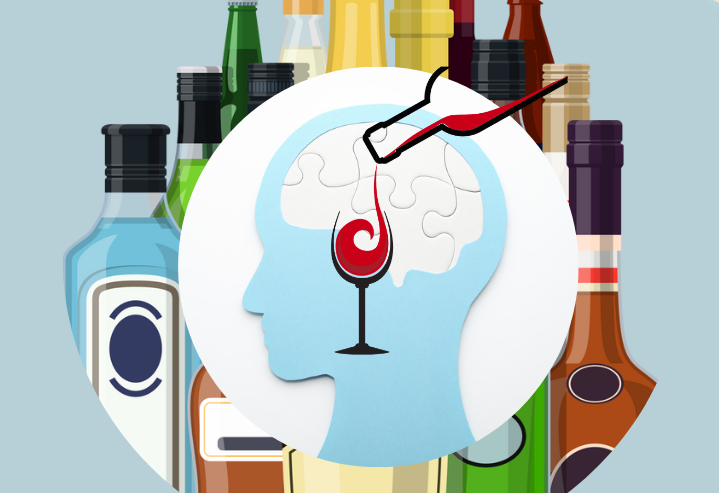
Alcohol and Mental Health
The Complex Relationship Between Alcohol and Mental Health: Unveiling the Effects
Alcohol has long been a part of human culture and social interactions, serving as a beverage for celebrations, relaxation, and stress relief. However, the effects of alcohol on mental health are far more intricate than a simple social lubricant. This article aims to delve into the nuanced relationship between alcohol consumption and mental well-being, exploring the potential consequences and offering insights into maintaining a healthy balance.
The Pleasure and Peril: Understanding the Connection
The connection between alcohol and mental health is multifaceted. In moderation, alcohol can induce feelings of relaxation and euphoria due to its impact on the brain's neurotransmitters, particularly dopamine. This is why people often turn to alcohol as a means of temporary escape from stress and emotional turmoil. However, the allure of these immediate benefits can mask the potential pitfalls that excessive alcohol consumption can lead to.
- Depression and Anxiety: While a drink or two might temporarily alleviate feelings of anxiety and depression, excessive alcohol intake can have the opposite effect. Regular overconsumption disrupts the brain's delicate balance of neurotransmitters, contributing to the development or exacerbation of these mental health disorders. Moreover, alcohol is a depressant that can lead to increased feelings of sadness and hopelessness over time.
- Memory and Cognitive Function: Alcohol impairs cognitive function and memory, which can negatively impact mental health. Binge drinking, in particular, has been linked to deficits in learning, problem-solving, and decision-making abilities. These cognitive impairments can lead to frustration and diminished self-esteem, potentially exacerbating mental health issues.
- Sleep Disturbances: Alcohol disrupts the sleep cycle, affecting the quality and quantity of sleep. While alcohol may help individuals fall asleep faster, it often leads to fragmented sleep and frequent awakenings. Chronic sleep disturbances are closely associated with mood disorders, such as depression and bipolar disorder.
The Vicious Cycle: Alcohol Abuse and Mental Health
The relationship between alcohol and mental health is often a vicious cycle. Individuals struggling with mental health issues might turn to alcohol as a coping mechanism, seeking temporary relief from their symptoms. However, this coping strategy can backfire as alcohol's impact on neurotransmitters worsens their mental state over time. This negative feedback loop can result in a downward spiral, with mental health deteriorating further as alcohol consumption increases.
Breaking the Cycle: Strategies for Balance
- Awareness and Education: Recognizing the signs of alcohol abuse and its impact on mental health is the first step towards breaking the cycle. Education about the potential consequences of excessive alcohol consumption can empower individuals to make informed choices.
- Seeking Professional Help: If alcohol consumption has become a coping mechanism for underlying mental health issues, seeking professional help is crucial. Mental health professionals can provide guidance on healthier coping strategies and develop a treatment plan tailored to the individual's needs.
- Healthy Coping Mechanisms: Encouraging the adoption of healthier coping mechanisms can mitigate the reliance on alcohol. Engaging in regular exercise, practicing mindfulness and meditation, pursuing creative hobbies, and maintaining a strong support network can all contribute to improved mental well-being.
- Moderation: If individuals choose to consume alcohol, doing so in moderation is essential. The National Institute on Alcohol Abuse and Alcoholism defines moderate drinking as up to one drink per day for women and up to two drinks per day for men.
The impact of alcohol on mental health is far-reaching and complex, ranging from temporary relief to exacerbation of underlying issues. While moderate alcohol consumption may offer temporary relaxation, excessive intake can lead to a host of mental health problems, including depression, anxiety, cognitive deficits, and sleep disturbances. Breaking the cycle of alcohol abuse and its negative impact on mental health requires awareness, education, seeking professional help, and adopting healthier coping mechanisms.
As we navigate the intricate relationship between alcohol and mental well-being, it's important to remember that every individual's journey is unique. By fostering a greater understanding of these connections and prioritizing mental health, we can strive for a balanced approach to alcohol consumption and overall well-being.